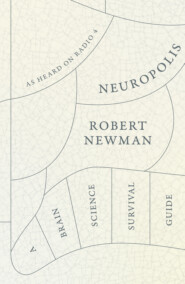скачать книгу бесплатно
‘I don’t think that’ll be necessary do you?’
Paul McCartney seems to get by pretty well with just the one emotion on his face. In live performance, however, he concedes that the rictus of mild surprise and vague curiosity has changed the emotional register of the songs. As he told one interviewer:
If you take a song like ‘Eleanor Rigby’, when we did it with Beatles it was always very much a song about pity and compassion. Now, when I perform ‘Eleanor Rigby’ live, it’s much more a song about mild surprise and vague curiosity. Sort of, ‘Ooh, I wonder where all those lonely people came from all of a sudden?’
The argument that the Japanese cannot tell fear from surprise contradicts one of the central tenets of human evolutionary biology. ‘I have endeavoured to show in considerable detail,’ wrote Darwin in The Expression of the Emotions In Man and Animals:
that all the chief expressions exhibited by man are the same throughout the world. This fact is interesting, as it affords a new argument in favour of the several races being descended from a single parent-stock, which must have been almost completely human in structure, and to a large extent in mind, before the period at which the races diverged from each other.
Everything significant about our species was already well in place 35,000 years ago when Paleolithic sailors rafted across the Sea of Okhotsk to become the first humans to make landfall on the Japanese archipelago. If Dick Swaab is going to take a sledgehammer to the Darwinian principle that all people everywhere express emotions in pretty much the same way, then we might reasonably expect him to provide some evidence. I mean, that’s a mainstay of human biology. But Dick Swaab produces no evidence to support his claim. None. In fact, the atrocious allegation that the entire Japanese nation suffers from a sort of autism is made in a book which offers no sources or footnotes at all.
The New Guineans are also supposed to be unable to do what is child’s play for Africans, Europeans and continental Asians, and tell fear from surprise. And Dick Swaab has worked out why. It’s because: ‘linguistic and cultural environments … determine … how facial expressions are interpreted’.
Over 800 different languages are spoken in Papua New Guinea and West Papua, and they not even from the same language families. The Ternate spoken in West Papua is from a different language family to the Austronesian and Papuan languages spoken in Port Moresby. Nowhere else on earth exhibits such linguistic diversity. Nowhere else on earth, therefore, is it less likely that a common language could create a shared inability to read facial expressions. Dick Swaab literally could not have chosen a worse example from the face of the earth than ‘New Guineans’ to support his argument. But Dick Swaab is on a roll. Don’t stop him now:
When surveying a scene, Chinese individuals, unlike Americans, don’t focus on a single object at a time but look at it in relation to its surroundings.
Last time I looked, the United States of America was a new-ish political state created from every race and nation on earth. According to the US Census Bureau, more than a fifth of the population, over sixty million people, speak a language other than English in the home. Americans are not a biological entity. They are not a linguistic one either. There is no specifically American way of seeing, just as there is no Chinese way of seeing. The Chinese people are not a Terracotta Army all facing one way, all seeing everything holistically the whole time. When NASA astronaut Mae Jemison, of mixed East-Asian and African-American descent, looked out of the Space Shuttle Endeavour’s window did she see the big picture or the small?
In her memoir Find Where The Wind Goes, Mae Jemison wrote that ‘science provides an understanding of a universal experience’.* (#ulink_b71c2f49-e111-501b-96e2-12379e78860e) What is so terribly damaging about Dick Swaab’s parascience is precisely its denial of the universality of human experience.
* (#ulink_73e0d943-c700-5733-88d8-99c6b8dfe425) Mae Jemison, Find Where The Wind Goes: Moments From My Life, 2001.
Вы ознакомились с фрагментом книги.
Для бесплатного чтения открыта только часть текста.
Приобретайте полный текст книги у нашего партнера:
